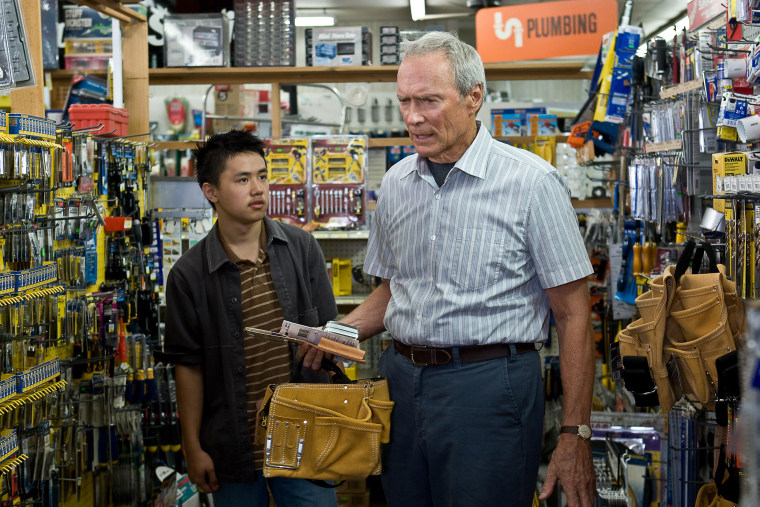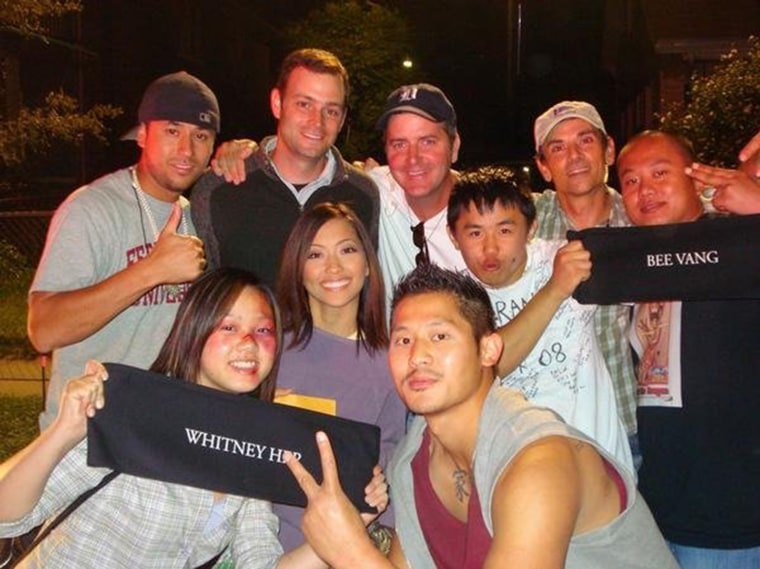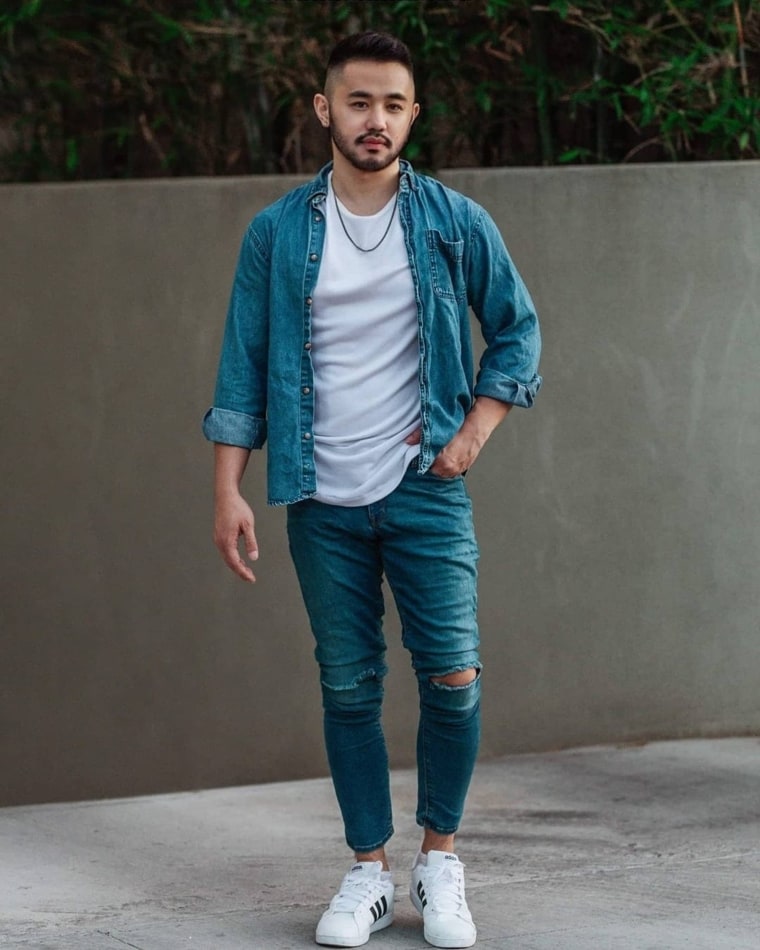During Asian Pacific American Heritage Month, TODAY is sharing the community’s history, pain, joy and what’s next for the AAPI movement. We will be publishing personal essays, stories, videos and specials throughout the entire month of May.
In 2008, "Gran Torino" became the first major U.S. film to feature Hmong American actors. Among them was Bee Vang, then a 15-year-old newcomer who portrayed Thao Lor, a neighbor to Clint Eastwood's Walt Kowalski.
While watching "Gran Torino," I remember feeling a chill wash over me as the movie progressed. I had been eager and curious to watch a mainstream movie with Asian Americans taking top billing, a rare sight 13 years ago. But throughout the film, I couldn't dismiss the casual racism that was prominently on display, with Kowalski hurling racial slurs almost as often as he shined his beloved Gran Torino car. What surprised me even more was how much the movie was applauded for its "white savior" storyline with Kowalski, a Korean War veteran, going from despising his Hmong American neighbors to befriending and then defending them from a violent gang.

The dismissal of the racism in the movie is something Vang also noticed and it inspired his NBC News op-ed in February, which connected the response to "Gran Torino" over a decade ago to the anti-Asian racism that has rocketed back into national consciousness since the coronavirus pandemic picked up last year.
- Watch TODAY All Day! Get the best news, information and inspiration from TODAY, all day long.
- Sign up for the TODAY Newsletter!
"The op-ed was written to talk about the ways that the phenomenon of laughter at the jokes about the slurs is kind of an analogue to the ways that people actually react to anti-Asian racism and how people reacted to the racism that we saw in the early days of COVID-19," Vang reflected in a Zoom interview with TODAY earlier this month. "No one took it seriously because it was just a joke ... or it just wasn't serious enough of an issue for people to deal with. And so what the piece was really about, was about that laughter and about the fact that like, there are always people who will say to those of us who find the slurs problematic (that) we are too sensitive, and we are snowflakes. And the fact of people always saying this is to diminish us and to also make our issues into nonissues."
The 29-year-old doesn't regret making his acting debut in "Gran Torino," but he acknowledges the movie holds up differently in 2021. "Watching it now feels very different in the sense that watching it, amid all of the anti-Asian attacks, and the ways those slurs are themselves reproduced by these perpetrators of anti-Asian hate, it sits very differently.”
Vang recalled, “When we were shooting 'Gran Torino,' it didn't feel as serious of an issue. I was someone that grew up hearing those slurs myself like, I was bullied, I was picked on, I was beaten up, I was actually assaulted at some point. I was called all of those words, from the C word to gook to everything.
"As everyone says, 'If you were so bothered by everything, then why did you take the role?' Well, we felt empowered, you know, to give oxygen to these eight Hmong American characters because we ourselves were Hmong Americans, and we wanted to take control of our representation which was what we were hoping to do.
"When I got on set and when I was reading all this stuff, it felt very much like an artifice, like it's just written words, and when you're on set, you are around cameras and lights and different people and so it just doesn't feel real enough that you feel impacted by it. And so that was the reason why I was able to separate myself and that moment of the shooting and production of 'Gran Torino.'”

Vang doesn’t see a place for “Gran Torino” in this day and age. "I couldn't possibly imagine the film being made in this moment, you know like, just have this movie, go out there where you know there's a lot of violent language used against Asian bodied people. It's not OK, like it feels very disturbing and discomforting in many, many ways."
But he's also not letting the dismissal of racism or fallout from “Gran Torino” hold him back and he's starting to speak out more as he returns to acting full time, especially as an Asian American in a predominantly white Hollywood industry. "If someone were to ask me today if I would have done a movie like 'Gran Torino,' I would say no. And part of that is why I feel getting back into acting today, or, in this moment, is a very different experience because there is some kind of hope, some kind of light at the end of the tunnel that like, you know, tells us that who we are, will not determine how far we make it in this industry."

As other Asian American actors like Olivia Munn and Daniel Dae Kim have been speaking out about anti-Asian violence and legislators have passed an anti-Asian hate crimes bill, the climate in the first half of 2021 does appear to have shifted. "This moment now that I see is an inflection point," Vang said. “And I think that things may have not entirely changed but I think we are heading in the right direction of where the Asian American voice and experience can finally be heard and be seen, and I think that, that is so important right now and that is what I see is happening."
Vang most recently starred in "Comisery," a web series-turned-movie, which he describes as a "sci-fi take on COVID-19 and all of the anti-Asian hate that we were seeing in (the late spring of 2020)." He'll appear next as the lead in a horror comedy titled "Dark Christmas," where he's excited to take on an expanded character, who is more than "an Asian American character that is so deeply bothered by his identity problems of what it means to be Asian American."


